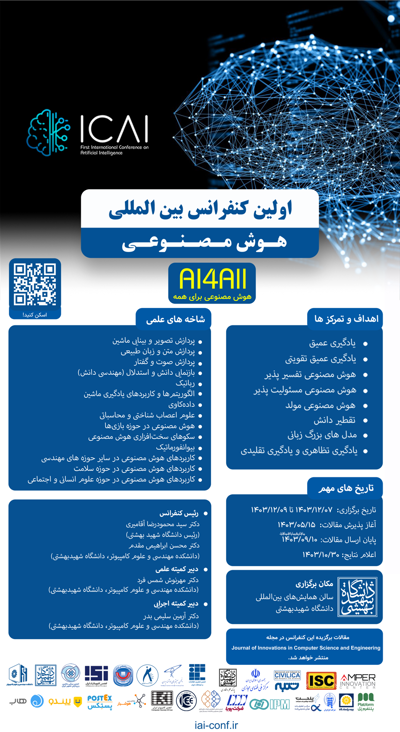0% Complete

نویسندگان :
کلمات کلیدی :
چکیده :
لیست مقالات بایگانی شده
Melika Arabzadeh - Kimia Maleki - Bijan Bambai - Hossein Azad
Seyyed Mohammad Ali Ardehali - Amin Faraji - Monireh Abdoos - Armin Salimi-Badr
Fateme Darkhal - Seyyed Ali Zendehbad - Zahra Sedaghat
Seyed Mohammad Javad Toghraee - Hadi Nilforoushan - Nafiseh Sanaee
Rahim Mohebbi Gargari - Ali Shalbafan - Seyed Jalil Alavi - Maryam Amirmazlaghni - Seyed Hamzeh Sadatnejad - Heiko Thoemen
Elaheh Hosseini - Maral Alipour Tehrani - Hadi Zare Marzouni
Seyyed Ali Zendehbad - Farinaz Azari - Hadi Dehbovid
Zinat Zarandi - Amirreza Behmanesh - Mohammad Medhi Ebadzadeh - Thierry Pozzo
Sajjad Hashemian Meymandi - Mohammad Saeed Arvenaghi
Morteza Mahdavi Mortazavi - Mehrnoush Shamsfard

